Lives Of The Stoics By Ryan Holiday & Stephen Hanselman
RM2.50
Lives of the Stoics: The Art of Living from Zeno to Marcus Aurelius By Ryan Holiday & Stephen Hanselman (PDF)
A
New York Times Noteworthy Pick and a “stellar work” by Publishers Weekly.From the bestselling authors of The Daily Stoic comes an inspiring guide to the lives of the Stoics, and what the ancients can teach us about happiness, success, resilience and virtue.Nearly 2,300 years after a ruined merchant named Zeno first established a school on the Stoa Poikile of Athens, Stoicism has found a new audience among those who seek greatness, from athletes to politicians and everyone in between. It’s no wonder; the philosophy and its embrace of self-mastery, virtue, and indifference to that which we cannot control is as urgent today as it was in the chaos of the Roman Empire.
In Lives of the Stoics, Holiday and Hanselman present the fascinating lives of the men and women who strove to live by the timeless Stoic virtues of Courage. Justice. Temperance. Wisdom. Organized in digestible, mini-biographies of all the well-known–and not so well-known–Stoics, this book vividly brings home what Stoicism was like for the people who loved it and lived it, dusting off powerful lessons to be learned from their struggles and successes.
About the author

Ryan Holiday is one of the world’s bestselling living philosophers. His books like The Obstacle Is the Way,Ego Is the Enemy,The Daily Stoic, and the #1 New York Times bestseller Stillness Is the Key appear in more than 40 languages and have sold more than 5 million copies. Together, they’ve spent over 300 weeks on the bestseller lists. He lives outside Austin with his wife and two boys…and a small herd of cows and donkeys and goats. His bookstore, The Painted Porch, sits on historic Main St in Bastrop, Texas.
Introduction
The only reason to study philosophy is to become a better person.
Anything else, as Nietzsche said, is merely a “critique of words by
means of other words.”
No school of thought believed this—in the power of deeds over ideas—
more than Stoicism, an ancient philosophy that dates to Greece in the third
century BC.
It was Seneca, a Stoic philosopher of the Roman era, far removed from
the academy, who would say quite bluntly that there was no other purpose
to reading and study if not to live a happy life.
Yet this is not the role philosophy plays in the modern world. Today it’s
about what smart people say, what big words they use, what paradoxes and
riddles they can baffle us with.
No wonder we dismiss it as impractical. It is!
This book will be about a different and far more accessible type of
wisdom, the kind that comes from people like Seneca, a man who served
his country at the highest levels, endured exile and loss, struggled with
ambition and personal flaws, and ultimately died tragically and heroically
trying to make good on his theories. Unlike the so-called “pen-and-ink
philosophers,” as the type was derisively known even two thousand years
ago, the Stoics were most concerned with how one lived. The choices you
made, the causes you served, the principles you adhered to in the face of
adversity. They cared about what you did, not what you said.
Their philosophy, the one that we need today more than ever, was a
philosophy not of ephemeral ideas but of action. Its four virtues are simple
and straightforward: Courage. Temperance. Justice. Wisdom.
It should not surprise us then that we can learn just as much from the
Stoics’ lived experiences (their works) as we can from their philosophical
writings (their words). The wisdom offered by Cato the Younger’s
published works is scant—as a lifelong public servant, he was too busy in
office and in battle to write down more than a few sentences.

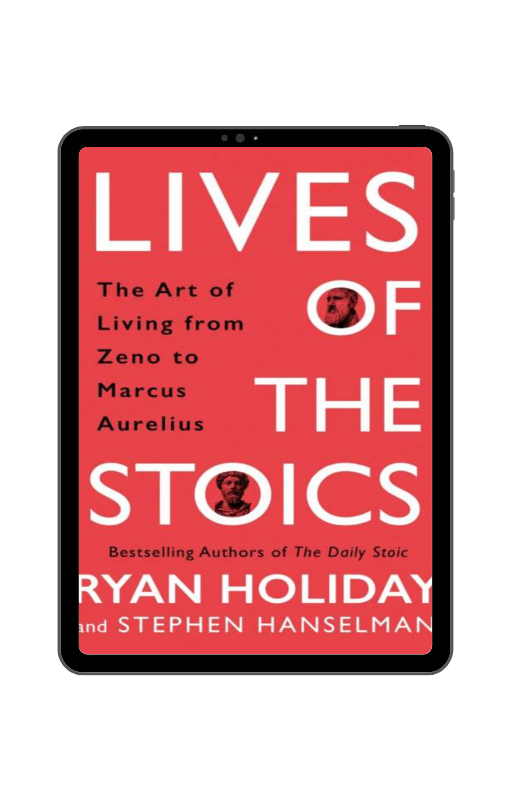
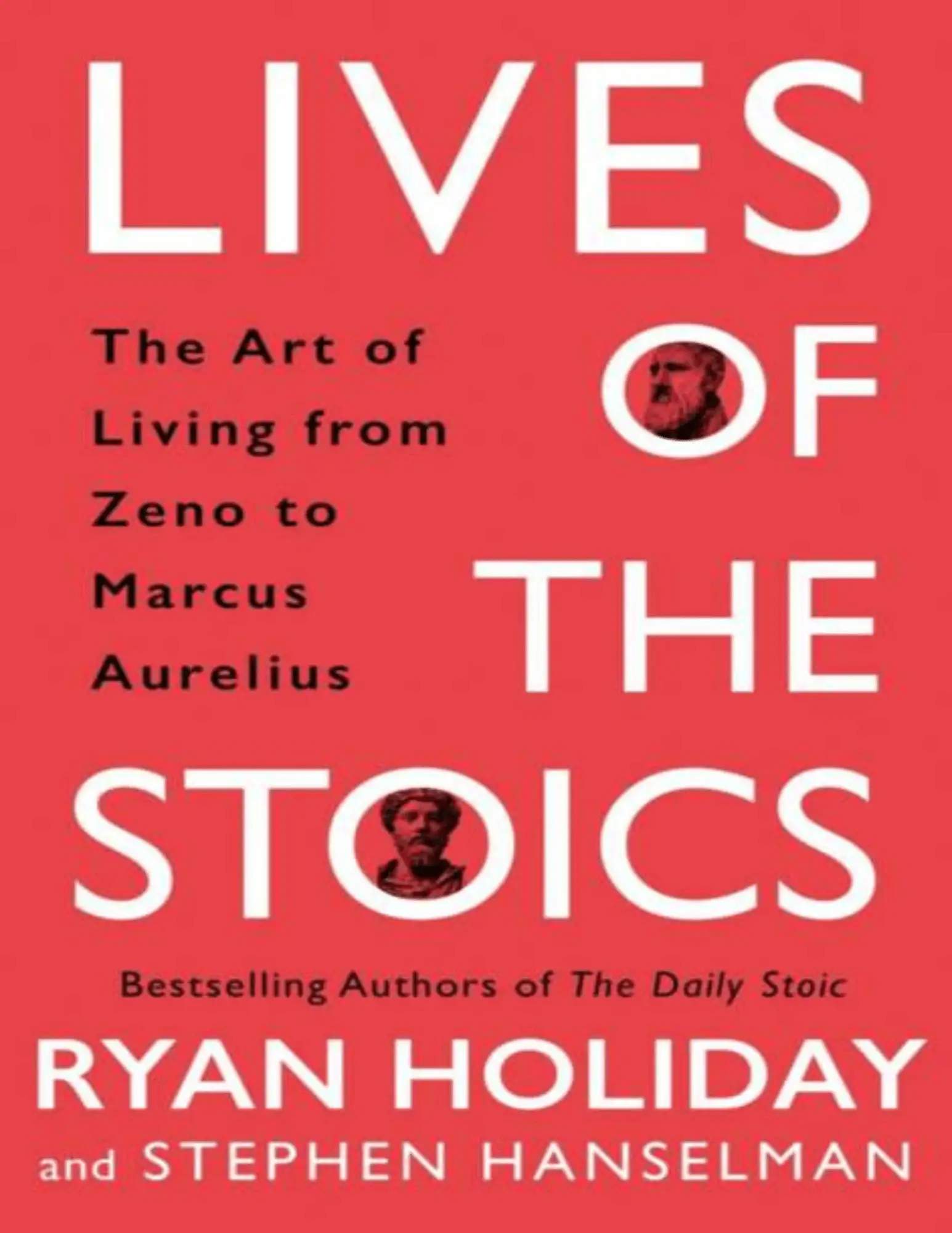
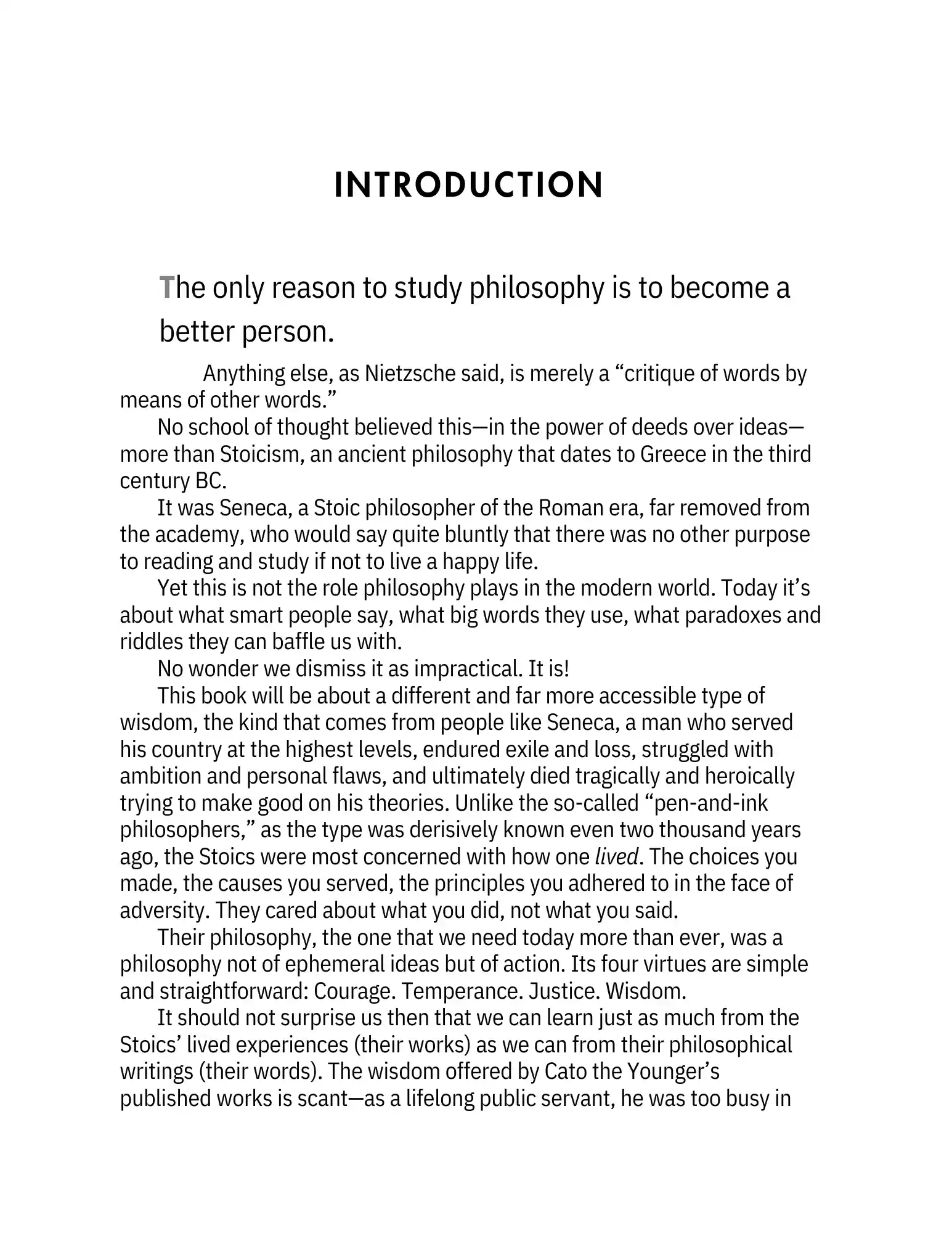
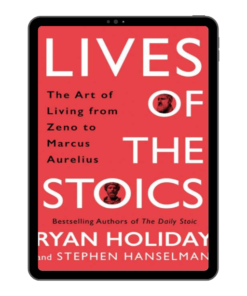
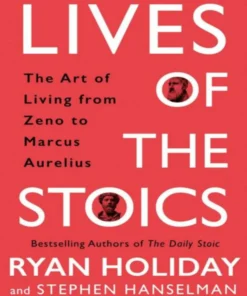
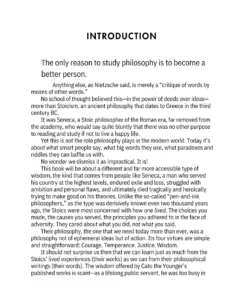



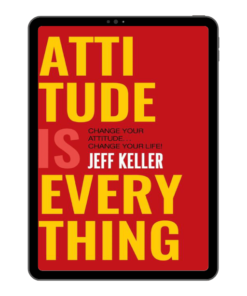






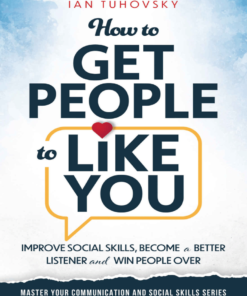





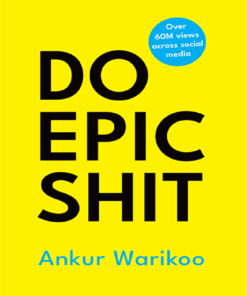


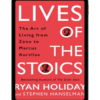
Reviews
There are no reviews yet.